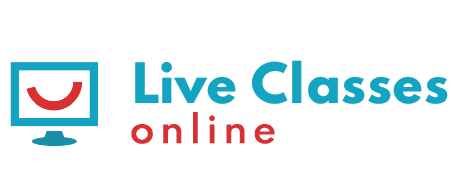Technology Can Improve Career Success for Students with Disabilities
by Ed Carter
Persons who are living with disabilities must navigate an array of challenges when it comes to achieving their career goals. Part of this has to do with the lack of accessibility in various venues, such as schools and workplaces. Difficulties with transportation and mobility can also be a factor. And unfortunately, there is still discrimination against individuals with disabilities.
Luckily, a range of technologies now exists that can assist persons with disabilities who are in college and getting ready to pursue their career goals. Adult Classes Online outlines a few here.
Assistive technologies that make a difference.
Understood.org explains that assistive technology is a broad term that covers any kind of equipment, device, tool, or system that aids persons with disabilities and improves their overall capability. These technologies can make an enormous difference in the daily life of those who live with disabilities. Some assistive technologies, such as wheelchairs, have been around for a long while, but recent developments have made them easier to use and equipped with more tools and choices.
Assistive technologies exist to serve persons with different kinds of disabilities, from hearing impairment to limited mobility to visual impairment. The increased opportunities available to persons with disabilities, thanks to assistive technology, translate into a better educational experience and more career options.
Some recent developments in assistive technologies.
Assistive technology has made enormous strides in recent years. Usability Geek notes that there are now screen readers for the visually impaired, text to speech software, systems that allow people to manipulate devices via eye movement, and magnification programs. These tools and systems which were once expensive and difficult to access are now readily available and sometimes exist already as features of typical devices.
Other tools that benefit persons with disabilities, such as lights that automatically switch on when someone comes in, are becoming more universally available as features of homes and office buildings. For college students, this is a tremendous boon, because getting to class and completing coursework can be done with less difficulty, and with better use of time.
How new technologies increase educational opportunities.
Assistive and other technologies have made it far easier for people with disabilities to access educational opportunities. Attending university, going to classes, and completing assignments is less onerous. Additionally, if living on campus or commuting to school is difficult, various internet technologies make it possible to get an education and earn a degree remotely, so if disabilities make it hard to leave one’s home or travel, this doesn’t mean foregoing an education. Persons with disabilities can use tech to sign up for college classes, participate, view lectures, and turn in assignments.
How technology aids in job-hunting.
Searching for employment opportunities to pursue once you have graduated has become less of a burden, too, since assistive technologies enable people to read employment listings on various online job boards and company sites, apply for jobs, and have job interviews. Apps that exist to help anyone with job searching also mean that persons with disabilities can find and respond to these listings with relative ease.
How technology increases the range of employment and career options.
Some of the most popular career choices for persons with disabilities include HR management, vocational counselor, and paraprofessional. For those who prefer remote work, one popular profession is accounting. Or, if you are a words person rather than a numbers person, consider working as an editor and advertising your book editing services as a freelancer, online. Another possibility to pursue is that of starting your own small business. In fact, more persons with disabilities start and successfully run their own businesses, than persons without disabilities.
It is an exciting time for people with disabilities, now that the public and the workforce are growing more aware of what they have to offer, and more willing to be accommodating. And the many new tech innovations out there mean increased ease and opportunity for pursuing career success.
Because of assistive technologies and various other tools that increase accessibility, persons with disabilities can perform well and thrive in many diverse work environments. In addition, thanks to internet technology and related tools and devices, remote work is becoming more mainstream. This means that more tasks can be done from home, and persons who have difficulty leaving their homes have far more job possibilities open to them.
Job opportunities that are a great fit for persons with disabilities.
Some of the most popular career choices for persons with disabilities include HR management, vocational counselor, and paraprofessional. For those who prefer remote work, one popular profession is accounting. Or, if you are a words person rather than a numbers person, consider working as an editor and advertising your book editing services as a freelancer, online. Another possibility to pursue is that of starting your own small business. In fact, more persons with disabilities start and successfully run their own businesses, than persons without disabilities.
It is an exciting time for people with disabilities, now that the public and the workforce are growing more aware of what they have to offer, and more willing to be accommodating. And the many new tech innovations out there mean increased ease and opportunity for pursuing career success.

